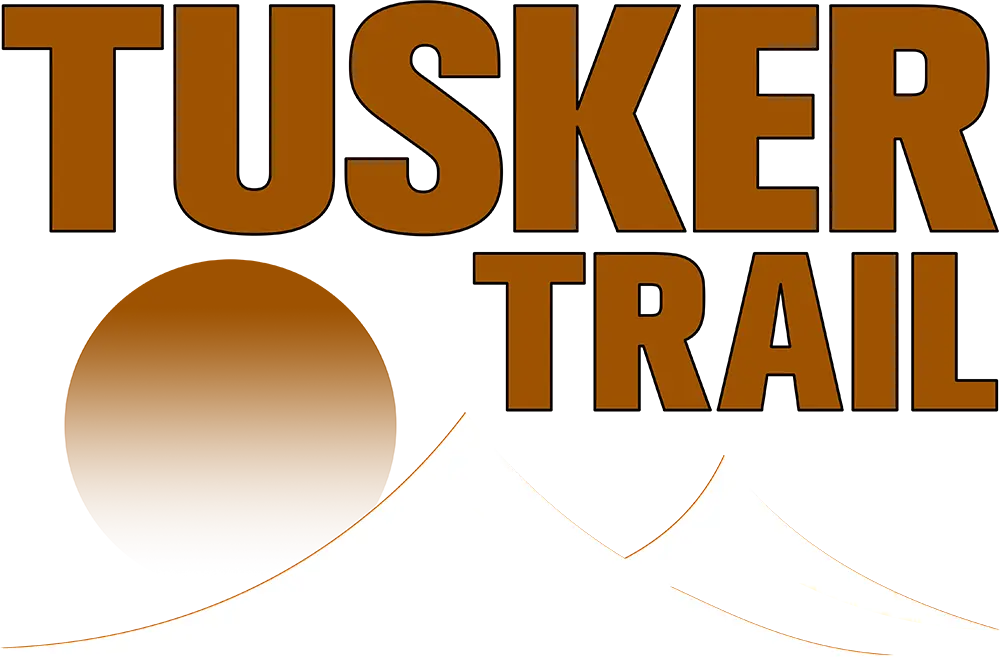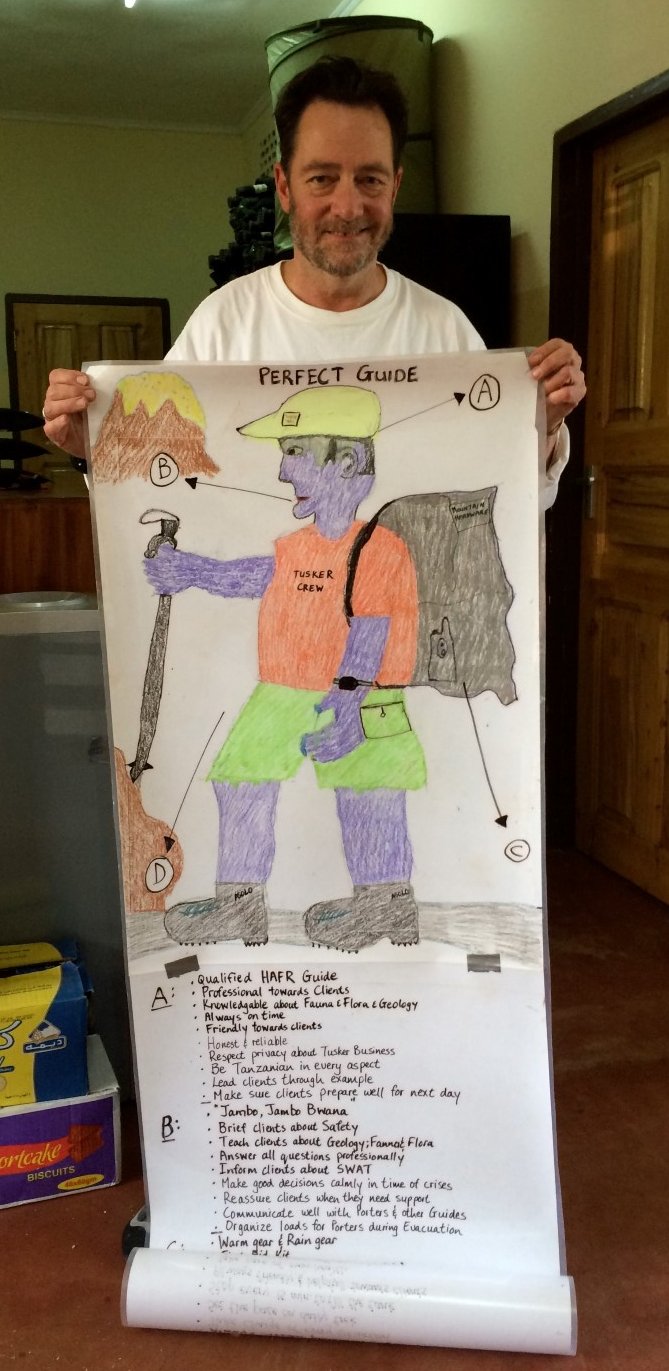Nobody climbs Mt. Kilimanjaro alone. Not for a long time. And the most important people on your team should be your guides.
After decades of climbing, Tusker’s founder, Eddie Frank realized this and put all his effort into developing a well-rounded and focused training course for Tusker’s Tanzanian mountain guides. Since 2001 Eddie has refined the guiding course as the medical world gains more insight into what happens to the human body at altitude.
Tusker Kilimanjaro guides are the Special Forces of the mountain. They are trained and prepared to combat the effects of altitude sickness and austere weather that can happen in the blink of an eye. They are experienced, resourceful and creative; and by putting your trust in their skill and experience, you gain the needed confidence and back-up to bag the summit.
Campfire sing along
Any good Kilimanjaro guide should have the basics. These include dealing with nasty blisters and early recognition of altitude sickness. When your clothes get wet your guides will tell you to get changed, but the unexpected courtesy that a climber remembers a lifetime, is what sets Tusker’s guides apart.
Kathleen came on her first Kilimanjaro climb a decade ago and found out that she was afraid of the dark as she was camping in the shadow of Kilimanjaro’s summit. Her guides aren’t trained to deal with Nyctophobia, so they used their creativity to help Kathleen.
“Our guides were amazing. They’d zip me into my tent and then sit around the fire and sing until I drifted off to sleep,” Kathleen writes in her Tusker VIP Adventure Group blog. That positive experience is why Kathleen will travel again this year with Tusker.
Poster is worth 1000 words
A recent twist in Tusker’s five day training refresher course was a poster competition where the guides were broken up into four groups that sketched a poster listing the elements of what makes a good guide.
Before Tusker partner Amy Frank started guiding on Kilimanjaro she was an outdoor wilderness guide as well asa school teacher in Canada. Her classroom experience has paid dividends for Tusker when she came up with the poster concept after observing prior guide training sessions.
“Students can demonstrate learning in different ways and we wanted to reach them in ways other than sitting in lectures or giving them a test,” Amy said. “We wanted to create a fun learning activity – and they embraced it.”
Amy said many Tanzanians are both social and creative; and the poster competition was a perfect match for their personalities while at the same time fostering education. The poster is human-sized and each of the four groups learned by criticizing each other’s posters. It was a shared moment that tightens the guiding bond between them – and that is important on the mountain. Teamwork among the guides is essential to successful climbs.
Degree of difference
Eddie’s hiring model has been to hire his guides from within the Tusker family. Half of Tusker’s guides had never guided and were home grown. Stability is a Tusker guide trademark. Eddie has not hired a new guide in seven years and his guide team leaders Frances Meela, Simon Minja, Elias Massawe and Thobias Meela have been with Tusker from 15 to 19 years.
“The best model is to hire and promote within the family because they understand and embrace the Tusker culture,” Eddie said. “Our guides are known on the mountain and assist the national park’s rescue teams and also helped other companies with rescues.” That’s why they’re known as the Kilimanjaro Special Forces.




